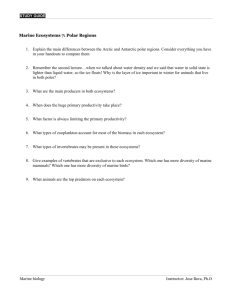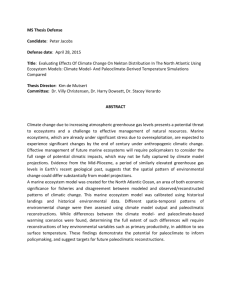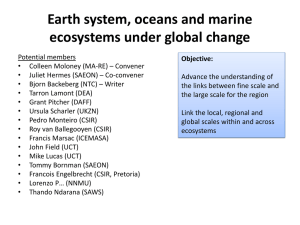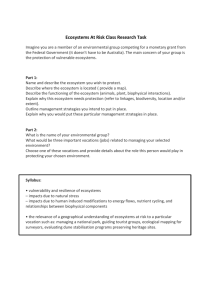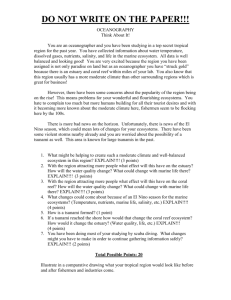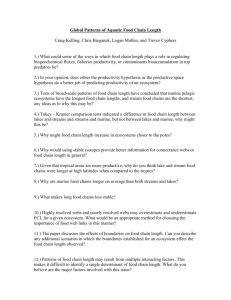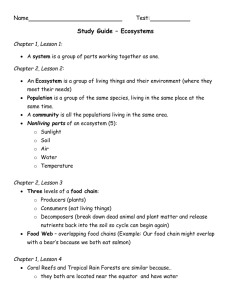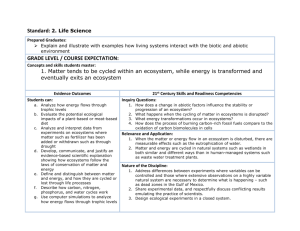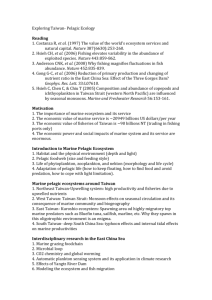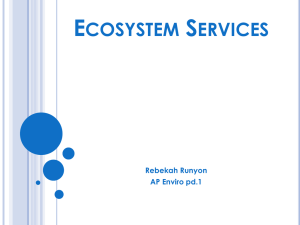Long Term Stability of Marine Ecosystems
advertisement
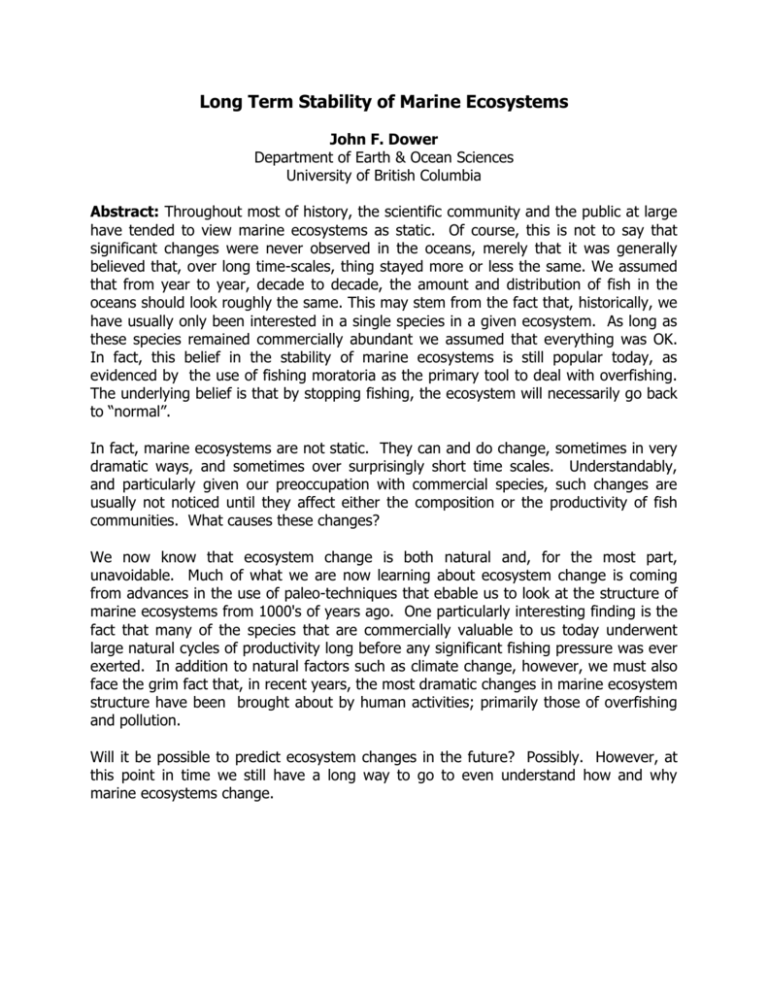
Long Term Stability of Marine Ecosystems John F. Dower Department of Earth & Ocean Sciences University of British Columbia Abstract: Throughout most of history, the scientific community and the public at large have tended to view marine ecosystems as static. Of course, this is not to say that significant changes were never observed in the oceans, merely that it was generally believed that, over long time-scales, thing stayed more or less the same. We assumed that from year to year, decade to decade, the amount and distribution of fish in the oceans should look roughly the same. This may stem from the fact that, historically, we have usually only been interested in a single species in a given ecosystem. As long as these species remained commercially abundant we assumed that everything was OK. In fact, this belief in the stability of marine ecosystems is still popular today, as evidenced by the use of fishing moratoria as the primary tool to deal with overfishing. The underlying belief is that by stopping fishing, the ecosystem will necessarily go back to “normal”. In fact, marine ecosystems are not static. They can and do change, sometimes in very dramatic ways, and sometimes over surprisingly short time scales. Understandably, and particularly given our preoccupation with commercial species, such changes are usually not noticed until they affect either the composition or the productivity of fish communities. What causes these changes? We now know that ecosystem change is both natural and, for the most part, unavoidable. Much of what we are now learning about ecosystem change is coming from advances in the use of paleo-techniques that ebable us to look at the structure of marine ecosystems from 1000's of years ago. One particularly interesting finding is the fact that many of the species that are commercially valuable to us today underwent large natural cycles of productivity long before any significant fishing pressure was ever exerted. In addition to natural factors such as climate change, however, we must also face the grim fact that, in recent years, the most dramatic changes in marine ecosystem structure have been brought about by human activities; primarily those of overfishing and pollution. Will it be possible to predict ecosystem changes in the future? Possibly. However, at this point in time we still have a long way to go to even understand how and why marine ecosystems change.
